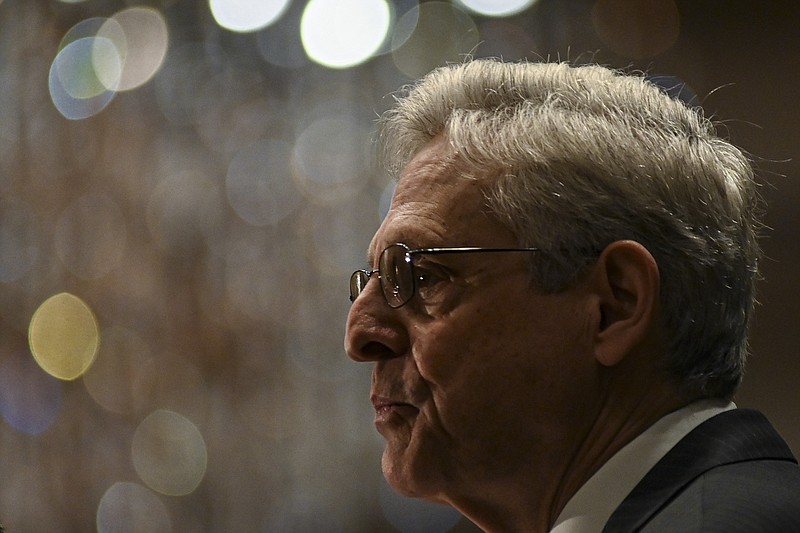Why now? What explains the thunderous revelation that the FBI executed a search warrant on Monday at Donald Trump's Mar-a-Lago residence? The apparent focus was documents the former president removed from the White House.
A very plausible answer is that a charge related to official documents could swiftly and cleanly serve as the basis for a satisfactory resolution of the pox on the country that is Donald Trump.
A more straightforward, prosaic answer to why the warrant was served is that the Department of Justice has assembled evidence of probable cause that evidence of a crime would be found at Trump's Florida home.
The Justice Department and the FBI have crossed the Rubicon, and they know it.
The majority of those who are the subjects of federal warrants wind up getting charged with federal offenses. That is, Monday's warrant and the search unequivocally lock Trump and the government he used to lead in an arch-antagonistic posture, playing for the highest of stakes and for keeps.
It might seem puzzling, even disappointing, that the Justice Department and the FBI would have chosen to throw down the gauntlet for a crime - "concealment, removal, or mutiIation generally" of official documents - that is far from the most serious of those we think the former president may have committed.
But a charge of mishandling or destroying official documents is no petty offense, not under the federal code (which provides for a prison sentence of up to three years).
In Trump's case, no surprise, the potential offense appears to be particularly brazen and damaging. Among the documents he reportedly took with him and has declined to return are true historical items that belong to the American people, including the letter President Obama left for him when he took office and his bizarre valentines to North Korea dictator Kim Jong-Un.
Further, a documents charge, as presidential accusations go, would be relatively easy to prove and would sidestep issues of 1st Amendment protected political activity that Trump no doubt would claim if he were indicted in relation to, say, his incendiary speech at the Ellipse on Jan. 6.
And most important, there's this: Anyone who "willfully and unlawfully conceals, removes, mutilates, obliterates, falsifies or destroys" official documents "shall be" disqualified - barred for life - from holding future federal office.
If Trump were convicted of this charge, the plain meaning of the law would permanently take him out of commission as a candidate for president, and all talk of his 2024 candidacy would be dead in the water.
There is a possible constitutional challenge to the provision - a Supreme Court case that holds that Congress cannot add to the enumerated qualifications for office in the Constitution - but it's possible Garland has hit on a grand resolution of the huge political, cultural and legal problem that Trump's malfeasance and norm-busting actions have created.
The department could agree to a modest jail sentence, or perhaps none at all, and decline to pursue the laundry list of other charges; Trump in turn could agree to not challenge the disqualification provision.
Those who yearn to see Trump in an orange jumpsuit without his fake tan and put away for years would be frustrated. At the same time, the former president could hardly emerge as a potent MAGA martyr.
Trump would be duly punished. Were he exiled from office, it would remove at a stroke the most dangerous and polarizing aspect of his continued defiance of the rule of law. To adapt the words of President Gerald Ford when he pardoned Nixon, Monday's Mar-a-Lago search could well be the beginning of a fitting and broadly - if not universally - accepted end to our latest "long national nightmare."
The Los Angeles Times
